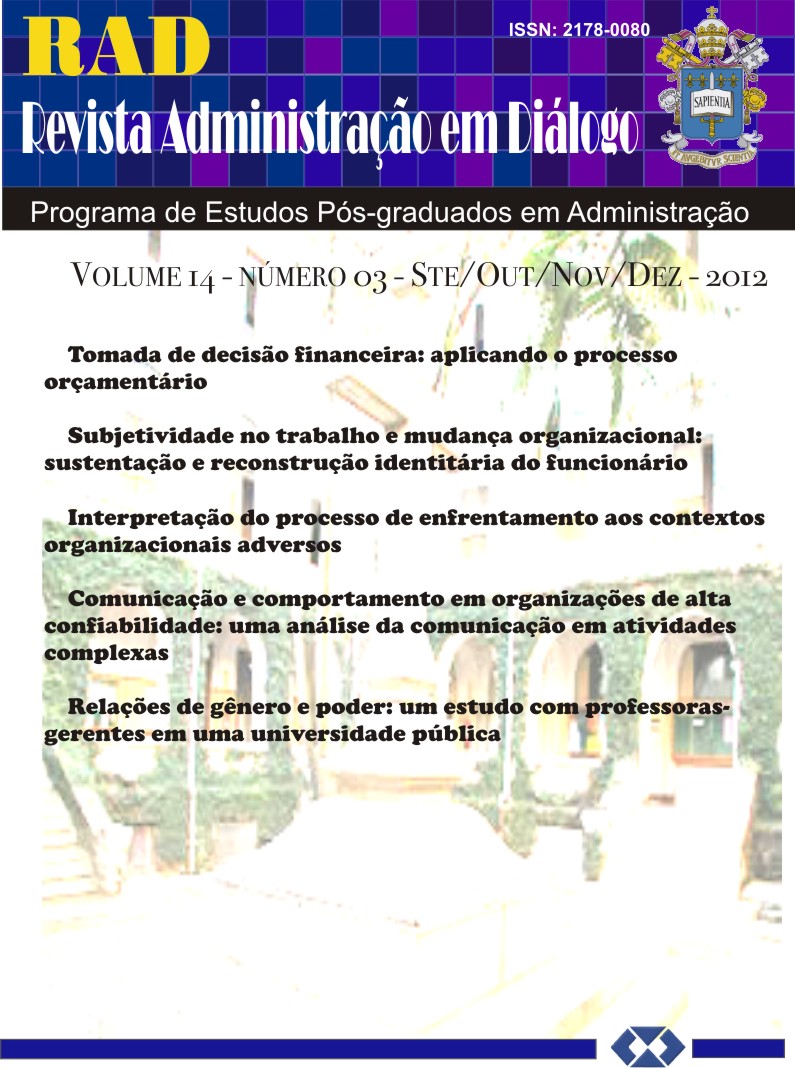SUBJECTIVITY AT WORK AND ORGANIZATIONAL CHANGE: sustentation and reconstruction of the employee's Identity
DOI:
https://doi.org/10.20946/rad.v14i3.9439Keywords:
Organizational change, Subjectivity, Imaginary, Identity, Identity crisisAbstract
The discussion developed in this paper, from a descriptive-qualitative research, deals with the employee´s subjective experience at a company during important organizational changing processes. The scope of the research is to verify how the subjective experience of organizational changes is reflected on the sustentation and reconstruction of the employee´s identity within the company. The ongoing changes in the company studied relate to controller and managers replacing, the insertion of new values and organizational innovations. Theoretically, the article presents aspects related to the simbolic in the employment relationship, to the imaginary, to the identity and identity crisis, the imaginary and the ideology in the identity construction and organizational identity. It can be concluded that the subjective experience of changes occurred in the company imply about the destabilization of the employee's identity through the jeopardizing of the friendly atmosphere, the human being metaphor as a result of the imaginary, the increasing competitiveness and individualism and the search for a professional qualification because of a new ideology assimilation.Metrics
Downloads
Published
How to Cite
Issue
Section
License
Authors who publish in this journal agree to the following terms:
1. Authors retain the copyright and grant the journal the right of first publication, with the work licensed simultaneously under a Creative Commons Attribution License after publication, allowing the sharing of work with acknowledgment of the authorship of the work and initial publication in this journal.
2. Authors are authorized to take additional contracts separately, for non-exclusive distribution of the version of the work published in this journal (eg publish in institutional repository or as a book chapter), with acknowledgment of authorship and initial publication in this journal.
3. Authors are allowed and encouraged to publish and distribute their work online (eg in institutional repositories or on their personal page) at any point before or during the editorial process, as this can generate productive changes, as well as increase the and the citation of the published work (See The Effect of Free Access).








